Are you a freelancer looking to modify your existing agreement? It's essential to ensure that both you and your client are on the same page, especially when circumstances change. Altering a freelance agreement can be straightforward if you know the right steps to take. Curious about how to effectively draft a letter for this purpose? Read on to discover the key elements you need to include!

Parties Involved
In freelance agreements, clearly defining the parties involved is crucial for establishing the terms of collaboration. The parties typically include the **Client**, who is the entity or individual commissioning the work, and the **Freelancer**, who is the individual providing services. Each party's legal name and contact information should be specified to avoid ambiguity. It is essential to specify any business entity types, such as LLC or corporation for the Client, which influences liability and tax considerations. The unique identifiers like tax identification numbers (TIN) or employer identification numbers (EIN) may also be included. In addition to the main parties, detailing any **third-party contributors** or subcontractors anticipated to be involved enhances transparency regarding roles and responsibilities. This clarity fosters accountability, ensuring both sides understand their obligations under the agreement.
Scope of Changes
A freelance agreement alteration should reflect specific modifications to the project's scope, including adjustments to deliverables, timelines, and compensation. For instance, adding a request for two additional revisions on the graphic design project initially agreed upon for five drafts. The original deadline of January 15, 2024, might be extended to February 15, 2024, to accommodate the new changes. Additionally, if the compensation was initially set at $1,200, any increase due to the added work should also be clearly stated, specifying whether it will be an hourly rate or a fixed amount for the new tasks. All changes should be documented to ensure clarity and avoid potential misunderstandings in the professional relationship.
Effective Date
A freelance agreement alteration, particularly regarding the effective date, should clearly state the terms under which changes will take effect. An effective date is crucial for determining when obligations and rights under the contract commence. Both parties, the freelancer and the client, should review the original agreement to ensure that all adjustments align with previously agreed-upon terms. Specifying an exact date, such as "January 1, 2024," helps prevent misunderstandings. Additionally, detailing the reasons for the alteration, such as project scope changes or unforeseen circumstances, further clarifies the context for both parties. Proper documentation and signatures from both the freelancer and the client on the updated agreement solidify the alteration's legality and enforceability.
Payment Terms
A freelance agreement alteration regarding payment terms is essential for clarity in professional relationships. Clear payment terms specify the compensation amount, due dates, and accepted payment methods (such as bank transfers, PayPal, or checks). For example, a standard payment term might include a 50% upfront fee before project commencement, with the remaining 50% due upon project completion or delivery by a specific date (e.g., 30 days after submission). Additionally, late payment penalties may be outlined, such as a fee of 5% for payments received more than 15 days past the due date. This ensures freelancers receive timely compensation for their work while establishing expectations for clients to follow.
Termination Clause
Freelance agreements often contain a termination clause that outlines conditions under which either party can end the contract. A meticulous termination clause is crucial for legal protection in the creative industry. The clause typically specifies notice periods, which may range from 14 to 30 days, allowing both parties time to adjust. Additionally, it should include grounds for termination, such as failure to meet deadlines or breach of contract. If the freelance work is conducted in specific locations, such as New York or London, local laws regarding contract termination should be considered. This ensures compliance with the legal framework governing freelance relationships. Payment terms should also be addressed, detailing how outstanding invoices will be handled upon termination, ensuring clarity on final compensation.

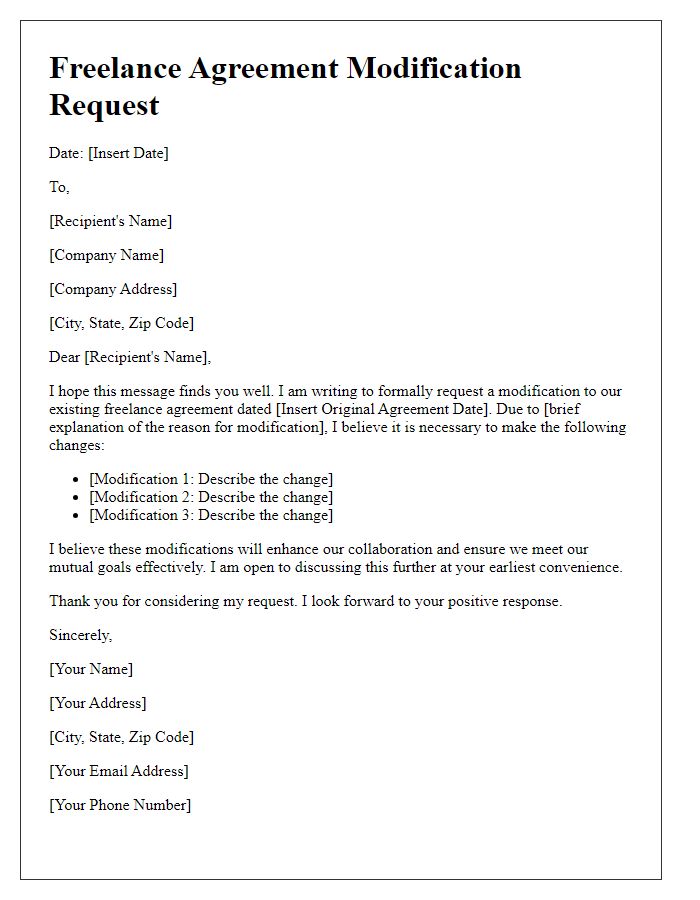
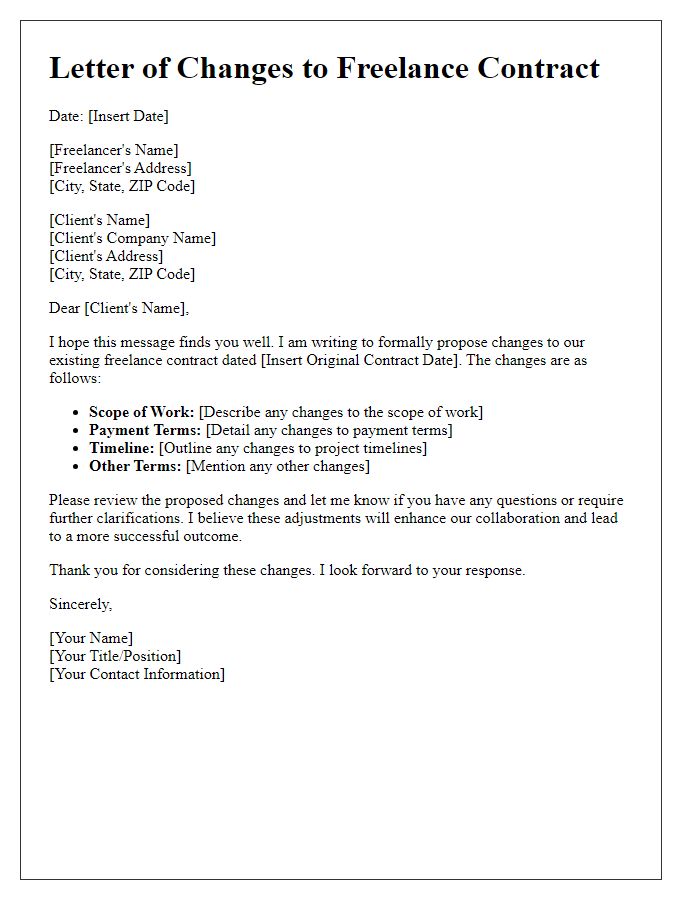
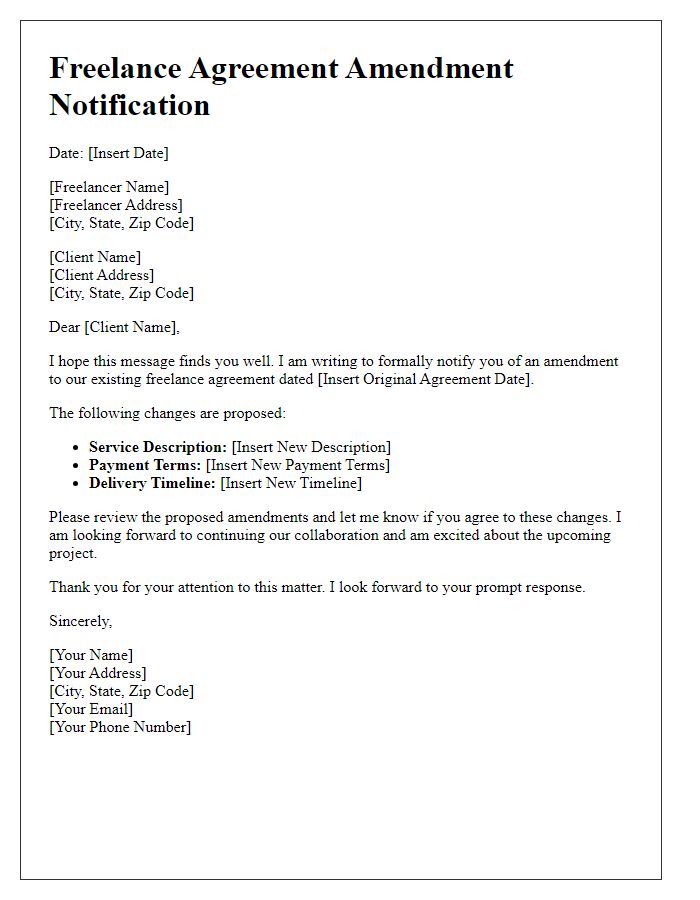
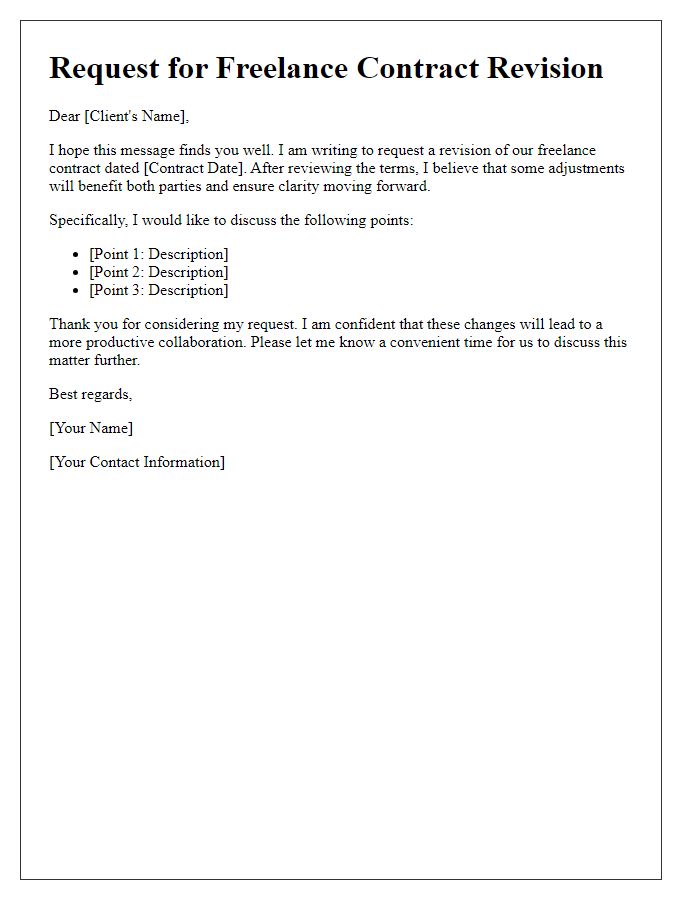
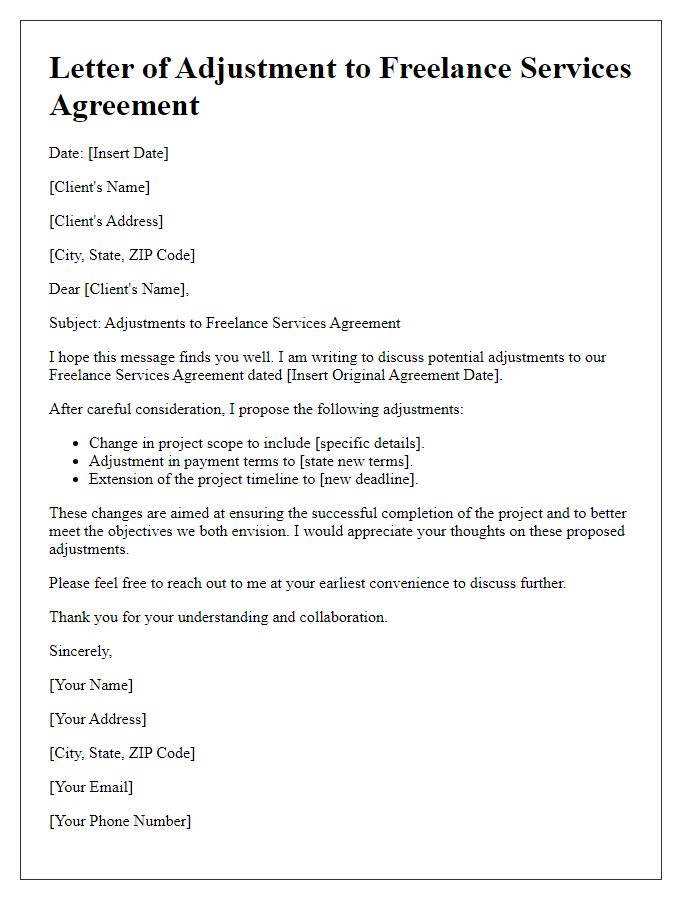
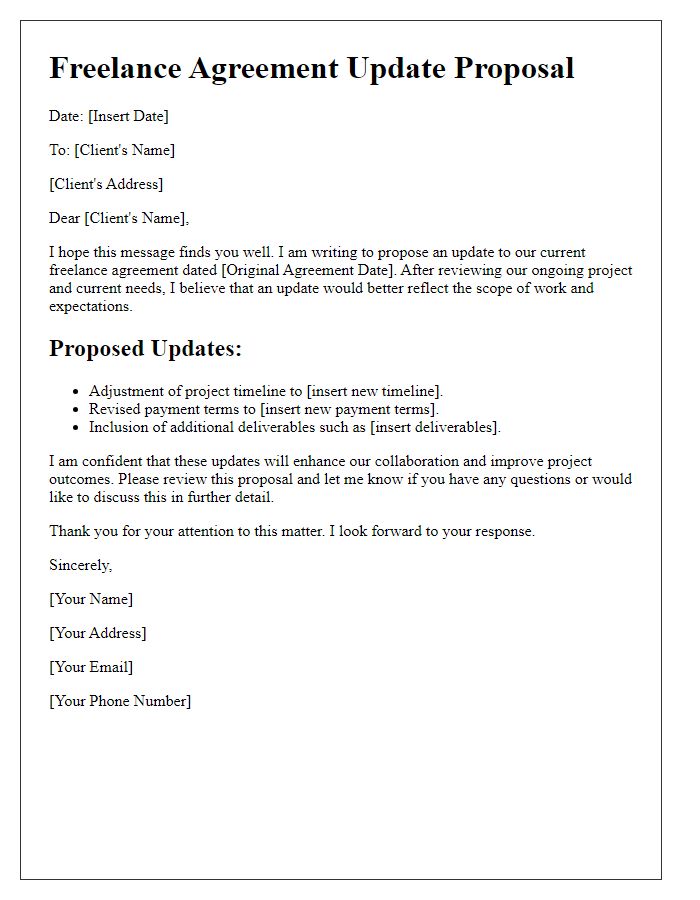
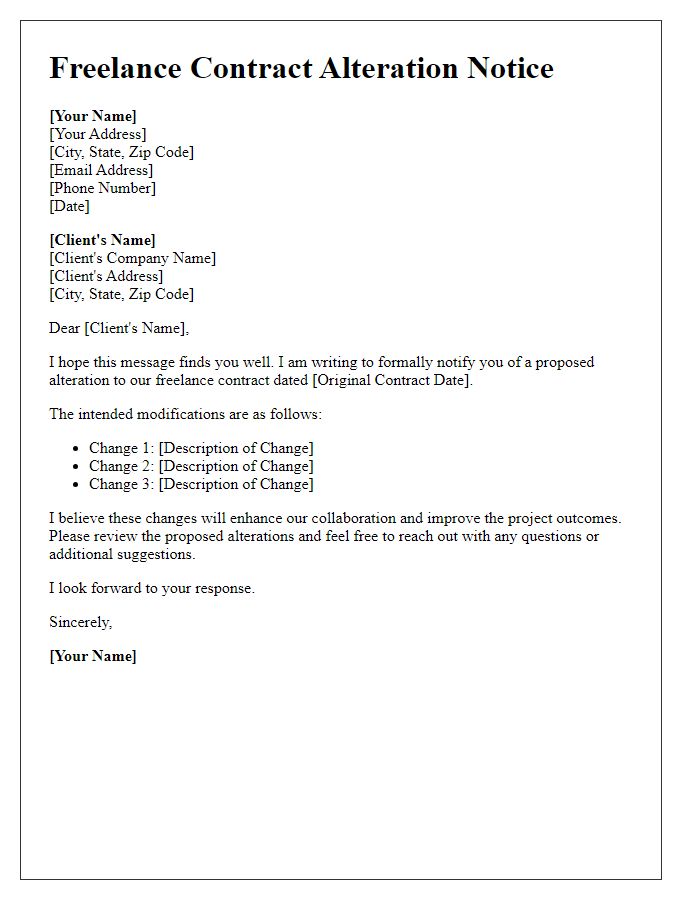
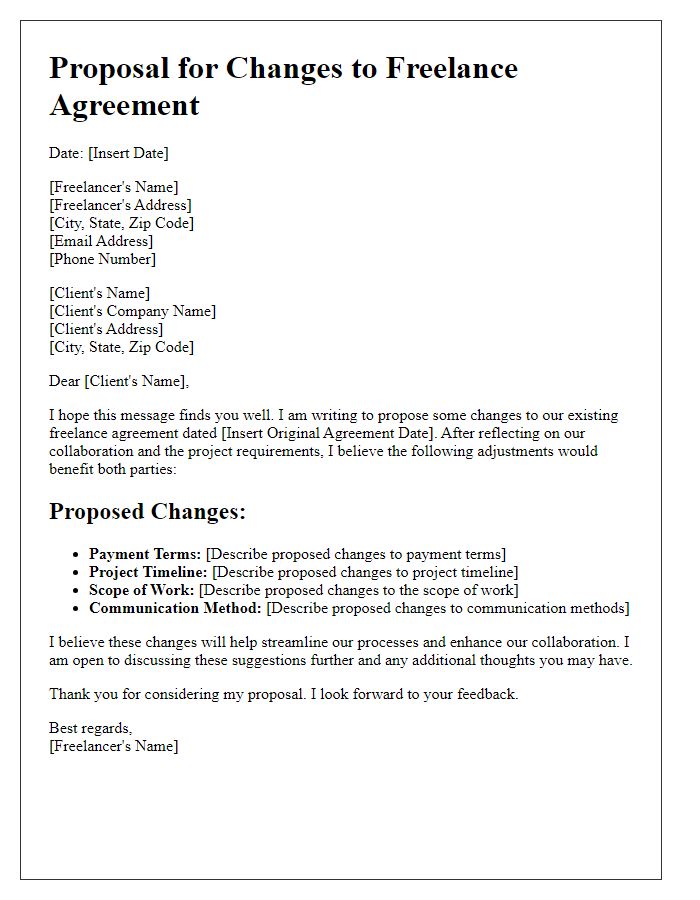
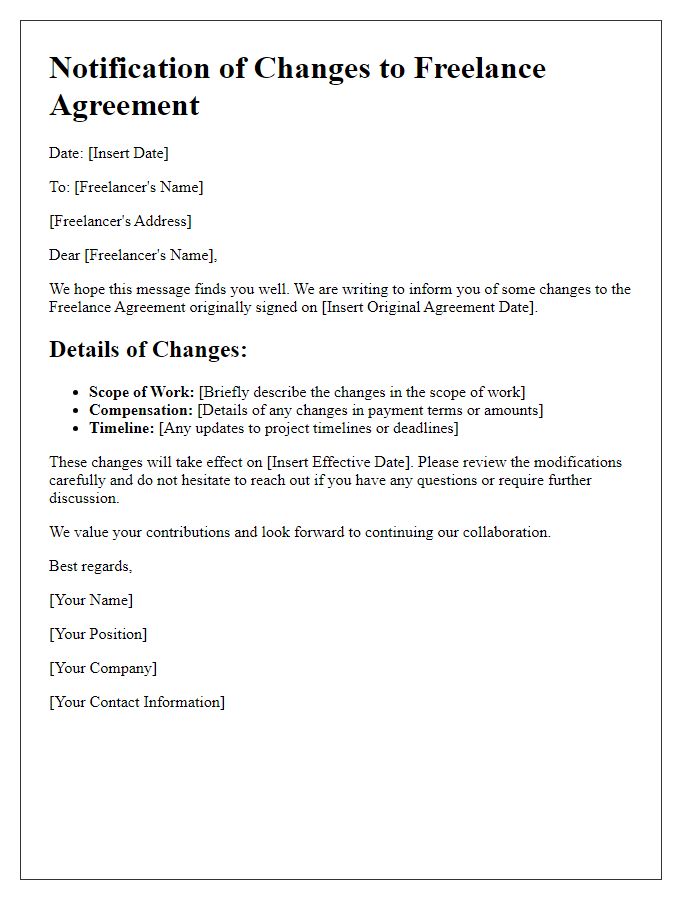
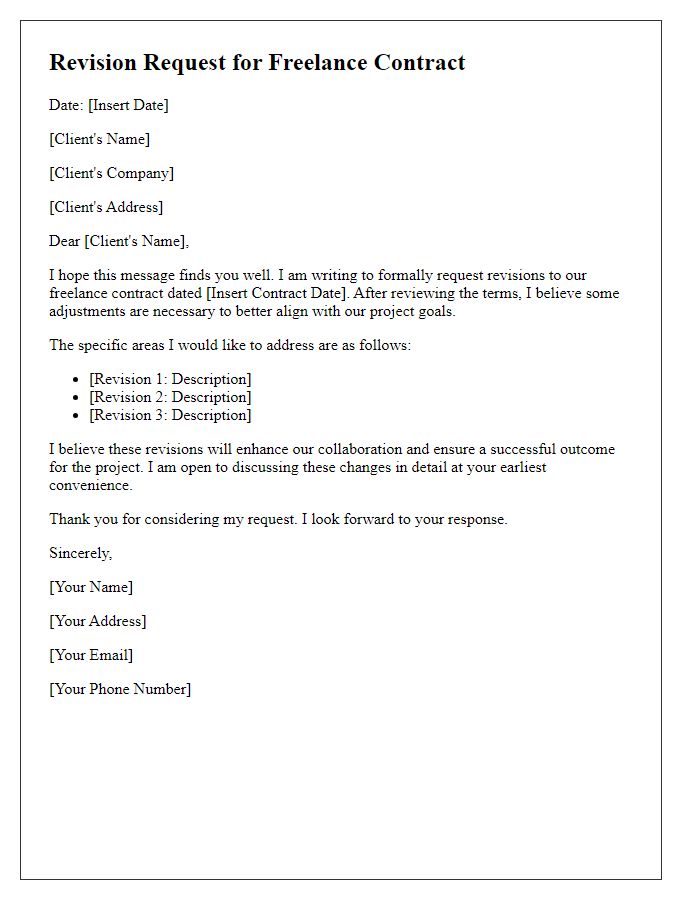


Comments